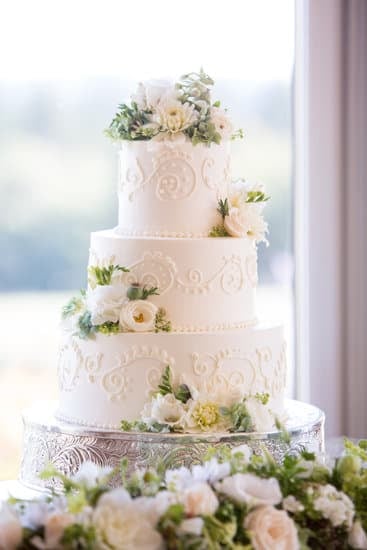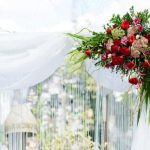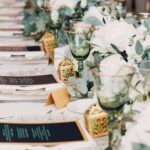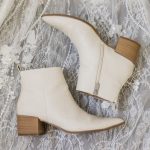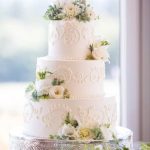Choosing the perfect dress for a wedding is crucial in creating the desired ambiance and making a lasting impression. The right dress can enhance the overall look and feel of the event, ensuring that you feel confident and stylish on such a special day. From formal black-tie affairs to more casual gatherings, understanding the dress code and making appropriate choices is key.
When it comes to weddings, different types of dress codes like black-tie, semi-formal, or casual play a significant role in determining what attire is suitable. Understanding these codes can help guide your decision-making process when selecting the perfect outfit for the occasion. Additionally, factors such as venue and seasonality should also be considered when choosing the right dress length and fabric for a wedding ensemble.
Color coordination is another essential aspect to consider when picking out a wedding dress. The right color can complement your skin tone and enhance your overall look, while also adhering to any color schemes set by the couple. Finding the perfect style that flatters your body type, as well as selecting appropriate accessories to complete your outfit, are all crucial elements in ensuring that you exude elegance and sophistication on this special day.
Understanding the Dress Code
When it comes to attending a wedding, one of the most crucial aspects to consider is the dress code. Understanding and adhering to the designated dress code not only shows respect for the couple getting married but also ensures that you fit in seamlessly with the overall ambiance of the event. There are typically several types of dress codes associated with weddings, ranging from formal black-tie affairs to more relaxed casual celebrations.
To help you navigate through the various dress codes, here is a breakdown of what each one typically entails:
- Black-Tie: For black-tie weddings, think elegant and sophisticated. Men should opt for tuxedos or dark suits, while women can choose floor-length gowns or chic cocktail dresses.
- Semi-Formal: Semi-formal weddings call for polished attire that strikes a balance between formal and casual. Men can wear suits or dress pants with a dress shirt, while women have more flexibility with knee-length dresses or evening separates.
- Casual: Casual weddings offer more room for creativity and comfort. Men can go for smart casual attire like khakis and button-down shirts, while women can opt for sundresses, jumpsuits, or skirts paired with blouses.
Understanding these different types of dress codes will help you determine what kind of outfit is appropriate based on the specific requirements of the wedding you will be attending. Remember to always consider the venue, time of day, and overall theme of the event when selecting your attire.
Choosing the Right Length
When it comes to choosing the right dress for a wedding, one crucial factor to consider is the length of the dress. The appropriate length can vary depending on the type of wedding you are attending and the venue where the event will take place. Understanding these variations can help ensure that you look and feel your best on this special day.
Formal Weddings
For formal weddings, such as black-tie or evening affairs, longer lengths are typically preferred. Floor-length gowns or dresses with elegant trains can be a perfect choice for these occasions. These styles exude sophistication and glamour, making them ideal for galas held in grand ballrooms or upscale venues.
Semi-Formal Weddings
Semi-formal weddings allow for a bit more versatility when it comes to dress length. Cocktail dresses or knee-length dresses are often suitable for these events. They strike a balance between formality and comfort, making them a popular choice for weddings held in banquet halls or gardens.
Casual Weddings
For casual weddings held in outdoor settings or more relaxed environments, shorter lengths such as midi or tea-length dresses can be appropriate. These styles offer a more laid-back and effortless vibe while still maintaining an element of style and elegance. Pairing them with comfortable shoes like sandals or flats can enhance the overall look.
Selecting the Right Fabric
When attending a formal wedding, luxurious fabrics like silk, lace, or tulle can elevate your look and add an elegant touch to your ensemble. For more casual or outdoor weddings, breathable fabrics such as cotton or linen are ideal choices to ensure comfort throughout the event.
Additionally, considering the location of the wedding venue is essential when selecting the fabric of your dress. For beach weddings, flowy and lightweight fabrics work well to create a relaxed vibe, while formal church weddings may call for more structured fabrics like mikado or duchess satin.
Incorporating details like embellishments or beading on certain fabrics can also enhance the overall aesthetic of your wedding dress. However, it is crucial to strike a balance and not overpower your look with too much embellishment. Ultimately, choosing the right fabric for your wedding dress requires careful consideration of various factors to ensure you not only look stunning but also feel comfortable on your special day.
| Seasonality | Recommended Fabrics |
|---|---|
| Summer Weddings | Chiffon, Organza |
| Winter Weddings | Velvet, Satin |
| Formal Weddings | Silk, Lace, Tulle |
| Casual Weddings | Cotton, Linen |
Color Coordination
When it comes to choosing the right dress for a wedding, color coordination plays a significant role in creating a cohesive and visually appealing look. The choice of color can set the tone for the entire event and reflect the style and theme of the wedding. Whether you opt for a traditional white gown or go for a bold and colorful option, selecting the perfect hue is essential to feeling confident and beautiful on your special day.
To pick the perfect color for your wedding dress, consider factors such as the season of the wedding, the venue’s setting, and your personal preferences. For spring and summer weddings, light pastel shades like blush pink, mint green, or baby blue are popular choices that exude freshness and romance. On the other hand, fall and winter weddings call for deeper tones such as burgundy, emerald green, or navy blue to complement the rich colors of the season.
When deciding on the color of your dress, it’s also important to think about how it will coordinate with other elements of the wedding, such as bridesmaid dresses, groomsmen attire, flowers, and decorations. Creating a color palette that harmonizes with these details will ensure a cohesive and polished look throughout the ceremony and reception.
Remember that there are no strict rules when it comes to choosing a color for your wedding dress – ultimately, select a hue that makes you feel radiant and expresses your individuality on this memorable occasion.
- Consider the season and setting of the wedding
- Harmonize with bridesmaid dresses and overall color palette
- Select a color that resonates with your personal style
Style Guide
Choosing the perfect wedding dress that complements your body type is crucial to looking and feeling your best on the big day. With a variety of styles available, it can be overwhelming to decide which one is most flattering for you. Understanding your body shape will help you narrow down the options and choose a dress that enhances your best features.
For brides with a pear-shaped body, an A-line dress is a great choice as it cinches at the waist and flows outwards, creating a balanced silhouette. Mermaid dresses are perfect for those with an hourglass figure, as they hug the curves and accentuate the waistline. Ball gowns work well for brides with a rectangular body shape by creating curves and adding volume to the lower half.
When deciding on the style of your wedding dress, it’s essential to consider not only what looks good on you but also what makes you feel comfortable and confident. Don’t be afraid to try on different styles to see what works best for your body type and personal style. By taking these factors into account, you can ensure that you choose a wedding dress that makes you look and feel beautiful on your special day.
| Body Shape | Recommended Style |
|---|---|
| Pear-shaped | A-line dress |
| Hourglass | Mermaid dress |
| Rectangular | Ball gown |
Accessories
When it comes to attending a wedding, choosing the right dress is crucial, but accessorizing properly can take your outfit to the next level. Accessories play a significant role in completing the overall look and adding personal style to your attire. Whether it’s a statement necklace, elegant earrings, or a chic clutch, the right accessories can enhance your chosen dress and make you stand out on such a special occasion.
Types of Accessories
There are various types of accessories that you can consider when dressing up for a wedding. Some popular options include jewelry like necklaces, bracelets, earrings, and rings. Additionally, handbags or clutches are essential for carrying essentials like lipstick and tissues. Hair accessories such as hairpins, headbands, or fascinators can also add an elegant touch to your ensemble. Lastly, shoes are another important accessory that shouldn’t be overlooked – opt for comfortable yet stylish footwear that complements your dress.
Complementing Your Dress
When selecting accessories for a wedding outfit, it’s important to ensure they complement your dress rather than overpower it. If you’re wearing a simple and understated dress, bold statement jewelry can add some excitement and glamour.
On the other hand, if your dress is intricately designed with embellishments or lace details, go for more subtle accessories to let the dress shine. Consider the neckline of your dress when choosing necklaces – plunging necklines pair well with pendant necklaces while strapless dresses suit chokers or statement earrings.
Helpful Tips
Remember that less is often more when it comes to accessorizing for a wedding. Avoid overdoing it by limiting the number of accessories you wear at once – focus on one statement piece and keep the rest minimal.
Take into account the overall theme of the wedding when selecting accessories – for example, opt for delicate floral pieces for a garden wedding or bold metallic pieces for an evening affair. Lastly, make sure your accessories are comfortable to wear throughout the event so you can enjoy celebrating without feeling restricted or weighed down by heavy jewelry.
Dos and Don’ts
When it comes to selecting the perfect dress for a wedding, there are several dos and don’ts that can make a significant difference in your overall look. One of the most important things to keep in mind is to always consider the dress code specified by the couple.
Whether it’s a black-tie affair, semi-formal event, or casual beach wedding, adhering to the dress code ensures that you are appropriately dressed for the occasion. This not only shows respect for the couple but also allows you to blend in seamlessly with other guests.
Another crucial factor to consider when choosing a dress for a wedding is the length. The appropriate length of your dress largely depends on the type of wedding and venue. For formal evening weddings, opt for floor-length gowns or elegant cocktail dresses, while daytime or outdoor weddings may call for knee-length or tea-length dresses. Ensuring that your dress length aligns with the formality of the event helps you strike the right balance between style and appropriateness.
Additionally, color coordination plays a vital role in creating a cohesive and visually appealing wedding look. While white and black are typically off-limits for guests, there is a wide range of colors you can choose from based on your personal style and complexion. Consider consulting color charts or seeking advice from stylists to determine which hues complement your skin tone best.
By paying attention to these dos and don’ts – from following the dress code to selecting suitable lengths and coordinating colors – you can confidently answer the question: “What Dress Is Appropriate for a Wedding? “.
Frequently Asked Questions
How Do You Know if a Dress Is Appropriate for a Wedding?
Determining if a dress is appropriate for a wedding involves considering factors like the formality of the event, the venue, and the couple’s preferences. A good rule of thumb is to avoid white or overly revealing outfits unless specified by the couple.
What Dress Is Not Appropriate for a Wedding?
A dress that is not appropriate for a wedding would typically include anything too casual, such as denim, t-shirts, or shorts. Additionally, any outfit that could potentially overshadow the bride in terms of extravagance or attention should be avoided.
What Is Traditional Wedding Dress Code?
The traditional wedding dress code often includes formal attire like suits and ties for men and cocktail dresses or elegant gowns for women. Black tie weddings may require tuxedos and floor-length gowns, while casual weddings allow for more relaxed outfits while still looking polished.

I have been involved in marriages for over 20 years helping couples and singles understand more about them.

